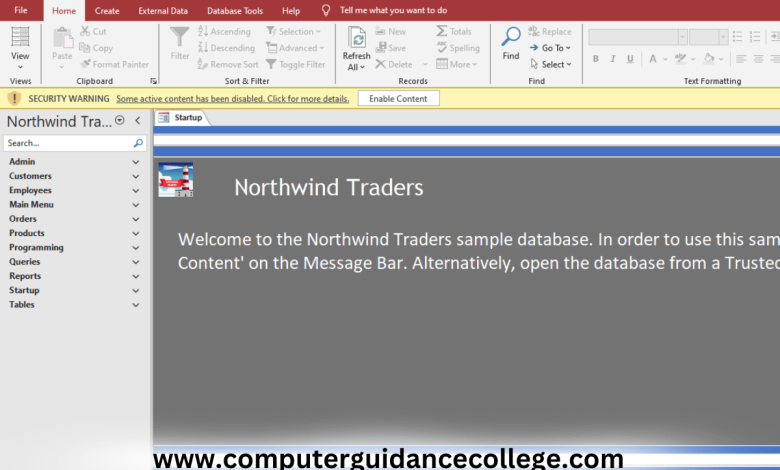Advance Access (Project Base)

Course Description:
This advanced course focuses on in-depth knowledge and skills for working with Microsoft Access databases. A project-based approach is used to help students develop practical, real-world solutions through hands-on experience. The course covers advanced features, tools, and techniques in Access, including automation, data modeling, custom forms, reports, and integrating with other software. Students will complete a comprehensive project that demonstrates their ability to design, develop, and manage Access databases efficiently.
Course Objectives:
By the end of the course, participants will be able to:
- Design and build complex relational databases in Microsoft Access.
- Master advanced data management techniques, including queries, automation, and macros.
- Integrate Access with other Microsoft Office tools, such as Excel and Outlook.
- Develop custom forms and reports to streamline data input and output.
- Apply advanced VBA (Visual Basic for Applications) programming to enhance database functionality.
- Complete a project that addresses a real-world data management challenge, demonstrating proficiency in all aspects of Access.
Course Structure:
The course will be taught through a series of hands-on projects, theoretical lessons, and practical exercises. Each module will build upon the last, providing a cumulative learning experience that culminates in a final project.
Course Modules:
Module 1: Introduction to Advanced Access Concepts
- Overview of Microsoft Access
- Data types and relationships (one-to-many, many-to-many)
- Database design principles and normalization
- Advanced querying techniques (subqueries, nested queries)
Module 2: Designing Complex Forms and Reports
- Creating user-friendly forms for data input
- Customizing forms with subforms, combo boxes, and command buttons
- Designing professional reports for efficient data presentation
- Using conditional formatting and grouping in reports
Module 3: Query Optimization and Advanced Techniques
- Advanced SQL queries (joins, unions, and advanced filtering)
- Creating and using parameter queries
- Using aggregate functions and grouping for analysis
- Query optimization strategies for large datasets
Module 4: Automating Database Tasks
- Using macros to automate repetitive tasks
- Creating custom actions and automating form navigation
- Advanced VBA programming for database automation
- Error handling and debugging techniques in VBA
Module 5: Database Integration and Sharing
- Importing and exporting data (Excel, CSV, and other formats)
- Integrating Access with Microsoft Excel and Outlook
- Sharing databases through Access Web Apps and cloud services
- Security features: encrypting databases, user-level permissions, and role management
Module 6: Capstone Project: Designing a Comprehensive Database Solution
- Students will work on a real-world database project from start to finish
- Develop a fully functional, custom Access database tailored to a specific business, educational, or research need
- Present the final project to peers and instructors for feedback
Assessment & Evaluation:
- Weekly Assignments: Hands-on projects (40%)
- Midterm Exam: Knowledge-based test covering all core features of Access (15%)
- Capstone Project: Final project where students design and implement a custom database solution (40%)
- Participation & Discussion: Engagement in class discussions, peer reviews, and group activities